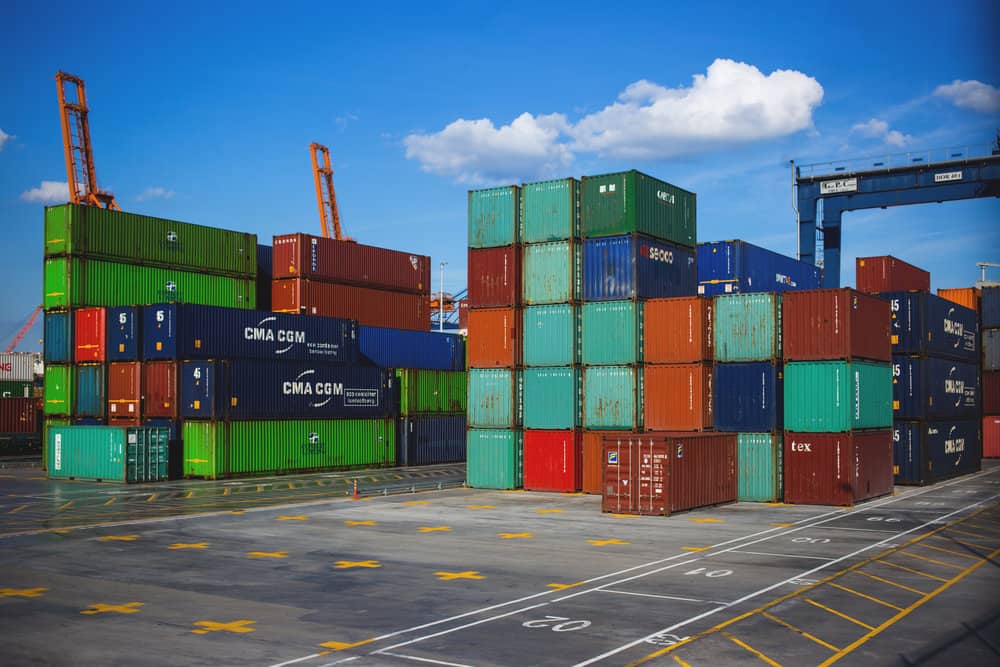
International freight forwarding in the U.S. has been dominated by small businesses, with most of them relying on antiquated systems including paper logging, faxing, and calling up carriers to coordinate their supply chain. Though digitizing the paperwork involved and automating processes seem like a plausible idea to navigate this mess, implementing it on ground zero is a lot of hard work.
Flexport, a freight forwarding company headquartered in San Francisco, is modernizing global trade through a combination of software and human expertise. It provides its clients with real-time shipment tracking, analytics, and a proactive issue management solution that helps businesses to transport their cargo around the world efficiently.
“Freight forwarding and international logistics are often overlooked as important industries, even though global trade is one of the biggest and oldest industries in the world,” said Taylor Oliver, Senior Director at the Chicago office of Flexport. “Over $1.1 trillion is spent every year on international freight forwarding services. If you look around, you’ll see why: It’s likely that no matter where you are sitting right now, every item in your line of sight was at some point transported by a plane, truck, ship, or train.”
Flexport helps to streamline and automate the inefficient process of freight forwarding, by digitizing supply chains for seamless global trade. Businesses get to expedite shipping while having greater visibility and control over their cargo, along with lower transaction rates and cheaper prices.
With regard to competition in the market, Flexport is a notch above the rest. “The majority of the incumbents within the industry have been around for quite a while, so Flexport as a relatively young company, has the advantage of being built with modern, home-grown software from the ground up,” said Oliver. “Because of that, we’re able to offer an improved client experience that’s based on providing maximum value to them as their logistics provider. Presenting these options to customers in the market enables them to decide which provides more value for their particular company, and we try to optimize around that.”
Flexport has a 360-degree business perspective, handling trucking and delivery, ocean and air freight, customs clearances, cargo insurance, quality inspections, and warehousing needs. These processes yield a lot of data, which Flexport can leverage for creating better data analytics solutions.
“The two biggest things that distinguish Flexport from our competitors are the technology we use and the service we provide. Our technology plays a big role in enabling us to provide such great service, as it helps to increase efficiency across the board while reducing transaction costs and the likelihood of human error,” said Oliver.
Back in the days preceding the founding of Flexport, its CEO and founder Ryan Petersen was running a small importing business with his brother, reselling products in the U.S. that they imported from China. While in the business, he was frustrated with the inefficient and outdated processes used in shipping goods internationally.
“He noticed there was shockingly little technology involved in any aspect of the trade process and supply chains were siloed and slow, which made exchanging documents or sorting through products very difficult,” said Oliver. “Finding the information he needed when he needed it was next to impossible. After experiencing these frustrations first hand, he became convinced that there was a better way to do things.”
Peterson ended up developing his own technology, with which he started working alongside small businesses by providing visibility into their supply chains. Over time, as he started to work with a lot more companies, he realized that his solution was unique and that even the larger companies out there struggle with primitive freight forwarding practices. Thus began the story of Flexport in 2013, and the company has not looked back since. It recently raised $110 million in a Series C funding round and has opened a new office in Chicago, apart from eight other offices it has around the world.
“Global trade still operates as though it’s in the 1970s. Flexport found that the incumbents in the logistics and trade industries were content with their stagnation, so that’s why we launched a technology-enabled and customer-centric company,” said Oliver. “Before Flexport, there was a lack of modern technology in the freight forwarding industry. This led to communication inefficiencies, wasted time, and redundant manual systems. All participants—including carriers and their customers—have suffered as a result. Flexport’s product is what the market has been lacking, and it was specifically created to fill that gap.”
Stay up-to-date with the latest commentary and insights on FreightTech and the impact to the markets by subscribing.











